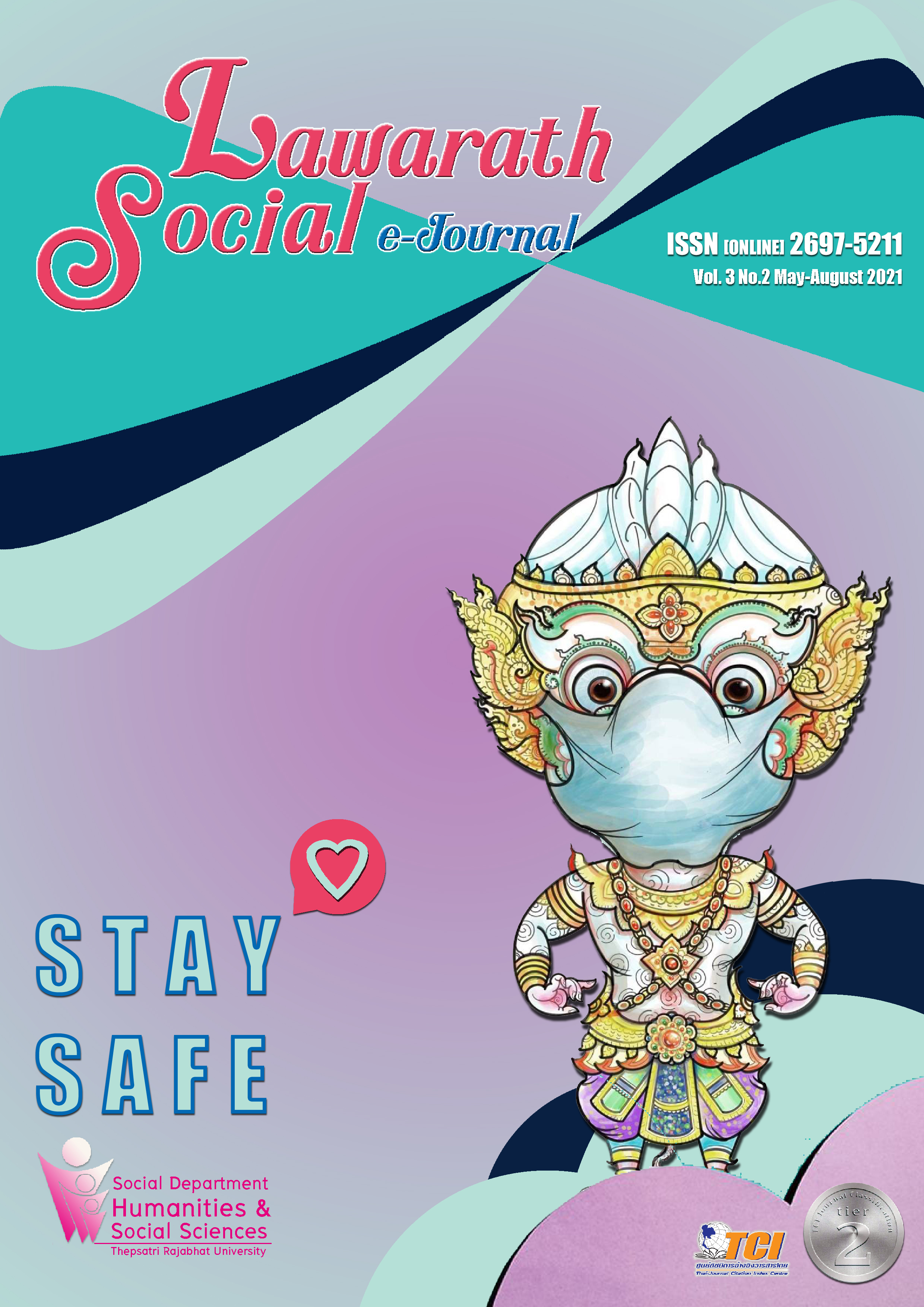การพัฒนาแอปพลิเคชันบทเรียน วิชาภาษาอังกฤษ ระดับชั้นมัธยมศึกษาปีที่ 2
Development of Application for English Lesson for Grade 8 students
คำสำคัญ:
การพัฒนาแอปพลิเคชันบทเรียน, วิชาภาษาอังกฤษ, ระดับชั้นมัธยมศึกษาปีที่ 2บทคัดย่อ
การวิจัยครั้งนี้มีวัตถุประสงค์ คือ 1) เพื่อพัฒนาแอปพลิเคชันบทเรียน วิชาภาษาอังกฤษ ระดับชั้นมัธยมศึกษาปีที่ 2 ให้มีประสิทธิภาพตามเกณฑ์ 80/80 2) เพื่อเปรียบเทียบคะแนนก่อนและหลังเรียนด้วยแอปพลิเคชันบทเรียนฯ 3) เพื่อศึกษาความพึงพอใจของผู้เรียนที่มีต่อแอปพลิเคชันบทเรียนฯ กลุ่มตัวอย่างที่ใช้ในการวิจัย คือ นักเรียนชั้นมัธยมศึกษาปีที่ 2 ในภาคเรียนที่ 2 ปีการศึกษา 2561 ที่สนใจเข้าร่วมโครงการ 2 ห้องเรียน จำนวน 49 คน สุ่มตัวอย่างแบบกลุ่ม (Cluster sampling) แยกเป็นห้องเรียนที่เป็นนักเรียนผลการเรียนอยู่ในเกณฑ์ดี 1 ห้องเรียน จำนวน 22 คน กับห้องเรียนที่เป็นนักเรียนผลการเรียนอยู่ในเกณฑ์อ่อนและปานกลาง 1 ห้องเรียนจำนวน 27 คน เครื่องมือที่ใช้ในการวิจัย ได้แก่ 1) แอปพลิเคชันบทเรียนฯ 2) แบบทดสอบก่อนเรียน-หลังเรียน 3) แบบประเมินคุณภาพแอปพลิเคชันบทเรียนฯ และ 4) แบบศึกษาความพึงพอใจ สถิติวิเคราะห์ข้อมูล คือ ค่าร้อยละ ค่าเฉลี่ย ค่าความเบี่ยงเบนมาตรฐาน การทดสอบประสิทธิภาพ (E1/ E2) และ t-test ผลการวิจัยพบว่า 1) แอปพลิเคชันบทเรียน วิชาภาษาอังกฤษ ระดับชั้นมัธยมศึกษาปีที่ 2 กลุ่มนักเรียน ผลการเรียนดี มีประสิทธิภาพ เท่ากับ 85.38/84.94 และกลุ่มนักเรียนผลการเรียนอ่อนและปานกลางเท่ากับ 82.54/80.56 เป็นไปตามเกณฑ์ที่กำหนด 2) คะแนนทดสอบหลังเรียนด้วยแอปพลิเคชันบทเรียนฯ ทั้ง 2 กลุ่ม (กลุ่มนักเรียนผลการเรียนดีกับกลุ่มนักเรียนผลการเรียนอ่อนและปานกลาง) สูงกว่าก่อนเรียนอย่างมีนัยสำคัญทางสถิติที่ระดับ .01 และ 3) ความพึงพอใจของผู้เรียนหลังเรียนด้วยแอปพลิเคชันบทเรียนฯ มีความพึงพอใจอยู่ในระดับมากที่สุด
Downloads
เอกสารอ้างอิง
กระทรวงศึกษาธิการ. (2561) วิเคราะห์นโยบายการตรวจราชการ ประจำปีงบประมาณ พ.ศ. 2561. กรุงเทพฯ: กระทรวงศึกษาธิการ.
ชัยยงค์ พรหมวงศ์. (2520). ระบบสื่อการสอน. กรุงเทพฯ: สำนักพิมพ์จุฬาลงกรณ์มหาวิทยาลัย.
_______. (2545). เอกสารประกอบการสอนชุดวิชาเทคโนโลยีการศึกษา หน่วยที่ 1-5.กรุงเทพฯ: สำนักเทคโนโลยีทางการศึกษา มหาวิทยาลัยสุโขทัยธรรมาธิราช.
ถนอมพร เลาหจรัสแสง. (2541). คอมพิวเตอร์ช่วยสอน. กรุงเทพฯ: ศูนย์หนังสือแห่งจุฬาลงกรณ์มหาวิทยาลัย.
นคร ละลอกน้ำ. (2561, พฤษภาคม–สิงหาคม). การพัฒนาแบบจำลองการสอนแบบผสมผสานโดยใช้สื่อที่สร้างสรรค์จากผู้เรียนและการจัดการเรียนรู้แบบร่วมมือเพื่อฝึกทักษะการใช้เครื่องมือเทคโนโลยีการศึกษา สำหรับนิสิตปริญญาตรี สาขาวิชาเทคโนโลยีการศึกษา. วารสารศึกษาศาสตร์, 29(2), 123-141.
ไพฑูรย์ ศรีฟ้า. (2555). เอกสารประกอบการบรรยาย แท็บเล็ต (Tablet) กับการจัดการศึกษาสำหรับผู้เรียนในยุคศตวรรษที่ 21. นครปฐม: ภาควิชาเทคโนโลยีและสื่อสารการศึกษา มหาวิทยาลัยศิลปากร.
สำนักงานคณะกรรมการพัฒนาการเศรษฐกิจและสังคมแห่งชาติ สำนักนายกรัฐมนตรี. (2559). แผนพัฒนาเศรษฐกิจและสังคมแห่งชาติ ฉบับที่ 12 พ.ศ. 2560-2564, สืบค้น สิงหาคม 12, 2564, จาก https://www.nesdc.go.th/ewt_dl_link.php?nid=6422/.
Dembo, M. H. (1991). Applying Educational Psychology in Classroom. New York: Longman.
Martin, Barbara, et al. (1966). LessonsLearned from the Florida Teletraining Project. Florida: National Convention of the Association for Educational Communications and Techology.
Wolman, B. B. (1973). Dictionary of behavioral science. New York: Van Norstrand.



